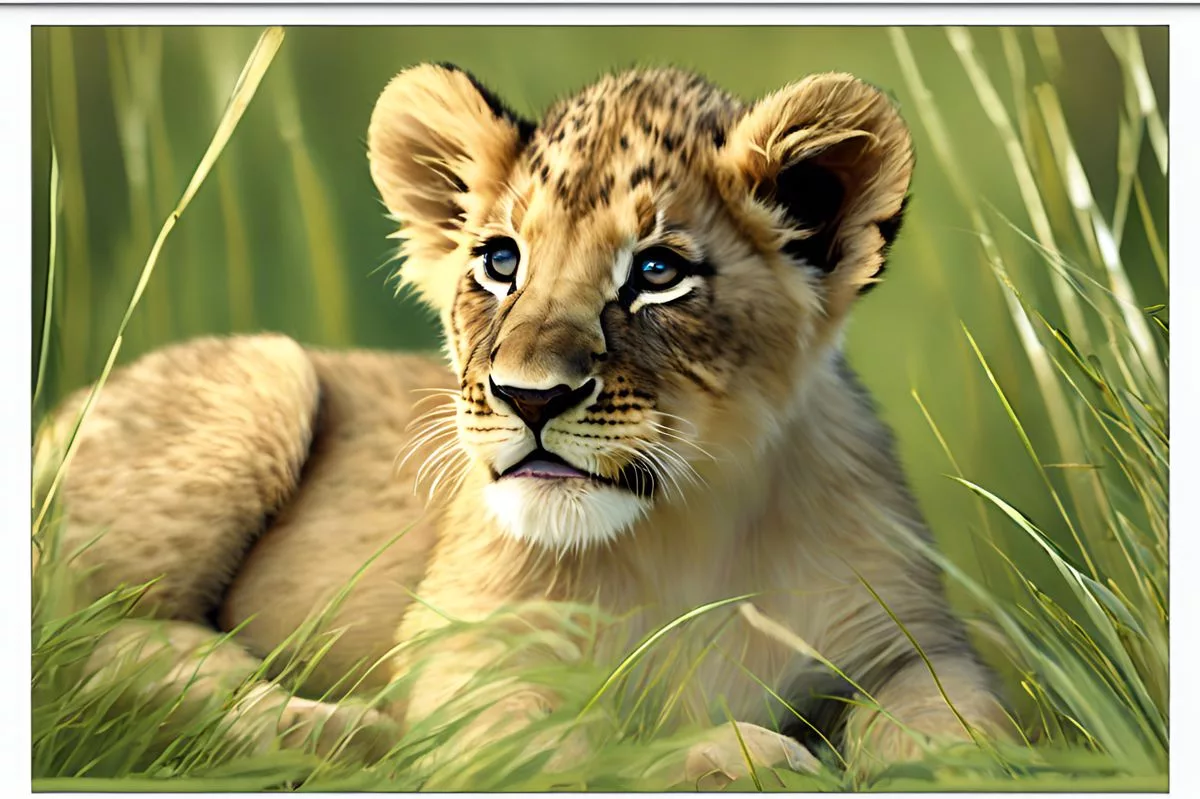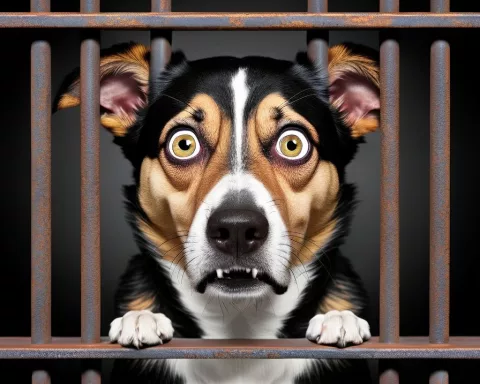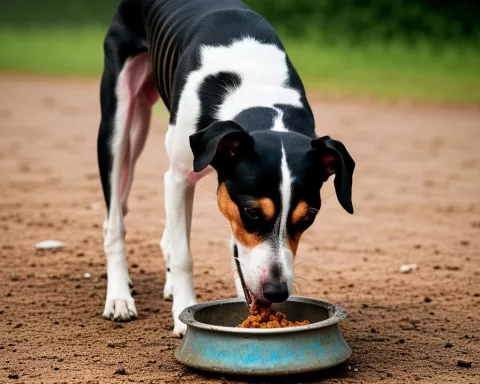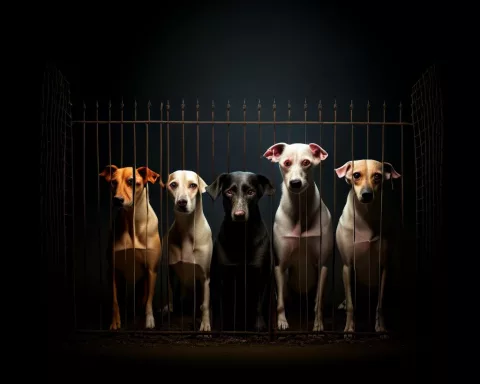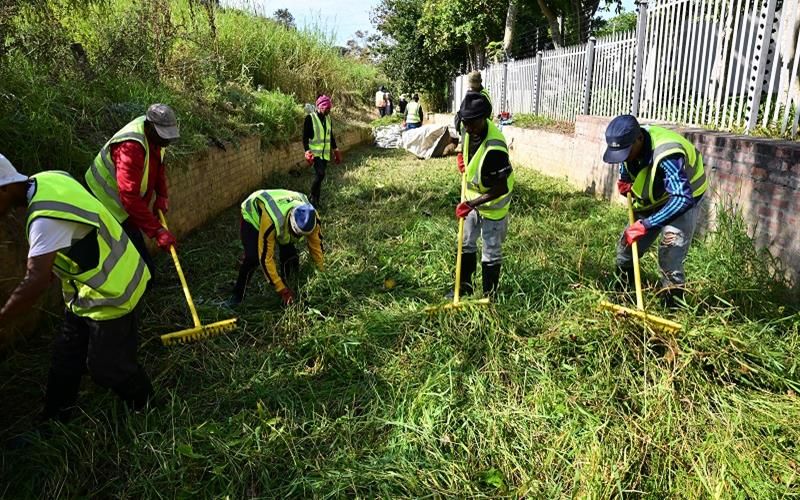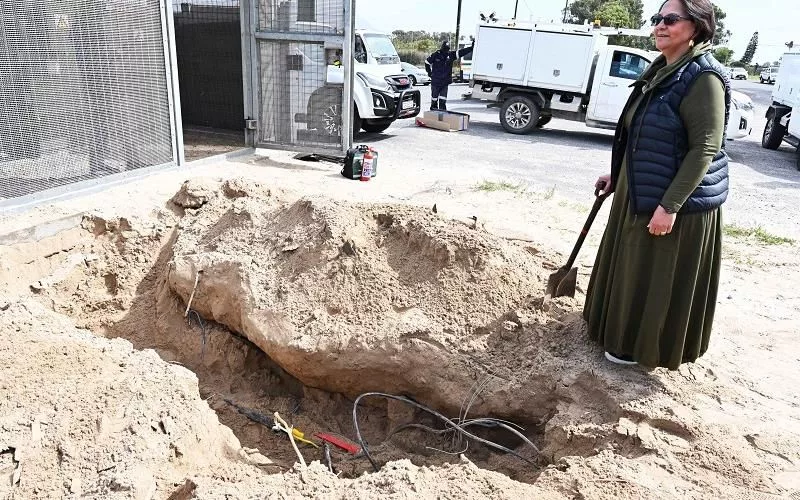Pi, a lion cub, was rescued from cruel conditions in Lebanon where he was exploited as a selfie prop and kept in chains with his mouth sealed shut. His journey to a sanctuary in South Africa highlights the fight against illegal pet ownership and the commendable efforts of organizations like Animals Lebanon and HSI Africa. Though the illicit pet trade still thrives, Pi’s story serves as a call for compassion, respect, and vigilance towards animal welfare.
The Imperative to Counterbalance Illegal Pet Ownership: A Tale of Pi, The Lion Cub – In our increasingly interconnected world where the lines between human and animal habitats blur, illicit pet ownership poses a significant violation of this fragile equilibrium. Pi’s heartrending story unfolded on the busy streets of Lebanon. These visuals highlighted the horrendous conditions Pi was forced to endure – he was kept in chains and his mouth was sealed with tape.
In our increasingly interconnected world where the lines between human and animal habitats blur, illicit pet ownership poses a significant violation of this fragile equilibrium. One notable instance that puts this issue into sharp focus involves Pi, a four-month-old lion cub. Rescued from brutal conditions in Lebanon, Pi’s journey found its destination in a sanctuary located on the outskirts of Cape Town, South Africa. This highlights the relentless battle against the unlawful pet trade and the commendable initiatives of certain organizations dedicated to championing animal welfare.
The Beginning of an Unjust Journey
Pi’s heartrending story unfolded on the busy streets of Lebanon. In March 2024, videos emerged depicting the young cub exploited as a selfie prop, an unsettling portrayal of how Pi was used for frivolous human entertainment. These visuals highlighted the horrendous conditions Pi was forced to endure – he was kept in chains and his mouth was sealed with tape.
This blatant neglect for Pi’s wellbeing prompted immediate action from Animals Lebanon, a domestic animal rights organization. Assisted by the Humane Society International (HSI) Africa, they orchestrated a worldwide operation to liberate Pi. Their achievement in rescuing Pi was only the initial leg of a much more significant voyage.
The Fight against Illegal Pet Trade
The relocation of Pi was feasible due to the financial aid from HSI Africa. Pi was transported to South Africa to start afresh in the Drakenstein Lion Park, a sanctuary that promised to provide Pi a ‘lifetime sanctuary’. This safe haven has become a refuge for other lions like Pi, marking the third rescue of a captive lion cub from Lebanon in the previous six months.
HSI Africa and Animals Lebanon’s collaboration showcases their unwavering dedication to animal welfare. Their alliance dates back to 2020 when they came together to rescue animals in the aftermath of a devastating chemical explosion in Beirut.
In spite of laws forbidding the private possession of lions in Lebanon, the ground reality narrates a grim story. The illicit pet trade flourishes, fostered by smuggling operations from adjacent countries. Dr Audrey Delsink, wildlife director for Humane Society International Africa, highlighted this issue, stating, “Pi’s tribulation in the unlawful pet trade mirrors what thousands of cubs like him undergo at the mercy of the captive breeding industry here in South Africa.”
The Beacon of Hope Amid Challenges
Nevertheless, optimism prevails amid these obstacles. The relentless advocacy by organizations such as HSI Africa and Animals Lebanon is gradually instigating change. Applauding the South African cabinet’s endorsement to terminate the exploitative captive breeding industry, Dr Delsink expressed confidence in a future where these magnificent beasts are liberated from suffering for profit.
Drakenstein Lion Park, Pi’s new dwelling, guarantees a life of liberty and expert care. Shane Hart, the park’s assistant director, guaranteed that Pi would spend the rest of his life devoid of exploitation and maltreatment.
A Call for Compassion, Respect, and Vigilance
In the delicate interplay between humans and animals, Pi’s journey is a pressing call for empathy, respect, and vigilance. It depicts a grim facet of human interaction with wildlife, yet simultaneously showcases the potential for humanity’s capacity for compassion and transformation. While Pi’s story commenced with tragedy, it has evolved into a beacon of hope – a hope for a world where animals receive the dignity and care they rightfully deserve.
1. Who is Pi and what was his story?
Pi is a lion cub who was rescued from cruel conditions in Lebanon where he was exploited as a selfie prop and kept in chains with his mouth sealed shut. His story highlights the fight against illegal pet ownership and the commendable efforts of animal welfare organizations.
2. What organizations were involved in Pi’s rescue?
Animals Lebanon, a domestic animal rights organization, and the Humane Society International (HSI) Africa were involved in Pi’s rescue and relocation to a sanctuary in South Africa.
3. What is the illicit pet trade and why is it a problem?
The illicit pet trade involves the illegal transportation and sale of animals as pets. It poses a significant violation of the fragile equilibrium between human and animal habitats and results in the exploitation and neglect of animals.
4. What is being done to fight against the illegal pet trade?
Organizations like HSI Africa and Animals Lebanon are dedicated to championing animal welfare and are collaborating to rescue animals from the illicit pet trade. They are also advocating for laws that forbid private possession of exotic animals and are working to terminate the exploitative captive breeding industry.
5. What is the significance of Pi’s story?
Pi’s story is a pressing call for empathy, respect, and vigilance towards animal welfare. It highlights the grim facet of human interaction with wildlife, yet simultaneously showcases the potential for humanity’s capacity for compassion and transformation.
6. What can individuals do to help counterbalance illegal pet ownership?
Individuals can support animal welfare organizations, advocate for laws that forbid private possession of exotic animals, and refrain from purchasing or supporting the illegal pet trade. They can also educate themselves and others about the importance of animal welfare.

